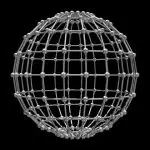Delta-8 THC, a synthetic cannabis compound, is gaining attention as a promising alternative for managing ADHD and anxiety symptoms due to its interaction with the endocannabinoid system. While some users report calmer and more focused states, caution is advised due to potential adverse effects. Consulting healthcare professionals before use is essential. Synthetic cannabis offers precise doses of specific cannabinoids, making Delta-8 THC less psychoactive than natural marijuana. Individual responses vary, and further research is needed to fully understand its potential compared to best kratom for ADHD and anxiety remedies. Safe usage practices are crucial, with low doses (5-10mg) recommended, and dosing consistency key for optimal effects. The regulatory environment for Delta-8 THC is evolving globally, impacting accessibility for medical uses. Early studies show promise, but more clinical trials are needed to establish its efficacy compared to best kratom for ADHD and anxiety alternatives.
“Unveiling the mysteries of Delta-8 THC, a synthetic compound mimicking cannabis’s effects, offers new perspectives on managing ADHD and anxiety. This article delves into the unique properties of Delta-8, exploring its psychoactive experience, potential therapeutic benefits, and comparisons with natural marijuana. We analyze its impact on brain function, provide dosage insights, and discuss the evolving regulatory landscape. Discover how this synthetic alternative may provide relief for symptoms of ADHD and anxiety, offering a promising path forward in holistic wellness—including guidance on finding the best kratom for these conditions.”
- Understanding Delta-8 THC: Unlocking the Psychoactive Experience
- The Impact on ADHD and Anxiety: Potential Benefits and Considerations
- Synthetic Cannabis vs. Natural Marijuana: A Comparative Analysis
- How Delta-8 THC Affects the Brain and Nervous System
- Exploring Safe Usage Practices and Dosage Guidelines
- Regulatory Landscape and Future Prospects for Delta-8 THC in Treating ADHD and Anxiety
Understanding Delta-8 THC: Unlocking the Psychoactive Experience
Delta-8 THC, a synthetic compound derived from cannabis, has gained significant attention in recent years due to its psychoactive properties. Similar to Delta-9 THC, it offers a range of effects that can be beneficial for certain conditions, including ADHD and anxiety. However, Delta-8 is often considered milder, providing a more balanced experience compared to its more well-known counterpart.
Unraveling the mysteries of this compound reveals a unique potential for those seeking alternative treatments. In terms of best kratom for ADHD and anxiety management, Delta-8 THC presents an intriguing option. Its ability to interact with our endocannabinoid system may offer relief from symptoms associated with these disorders, providing a calmer, more focused state without the intense psychoactivity of traditional cannabis.
The Impact on ADHD and Anxiety: Potential Benefits and Considerations
Delta 8 THC, a synthetic compound similar to cannabis, has gained attention for its potential effects on various conditions, including ADHD and anxiety. While it may offer certain benefits, it’s important to approach this topic with caution. Research suggests that Delta 8 could help alleviate symptoms of these disorders by interacting with the endocannabinoid system, which plays a role in mood regulation and cognitive function. Some users claim it provides a calmer, more focused state, making it potentially beneficial for those struggling with ADHD-related hyperactivity or anxiety issues.
However, considerations are crucial. Like any psychoactive substance, Delta 8 THC may have adverse effects, especially when used improperly or at higher doses. It’s essential to consult healthcare professionals before trying it as a treatment for ADHD or anxiety, particularly since individual responses can vary greatly. Additionally, the best kratom for ADHD and anxiety (a natural alternative) offers more well-studied options with established safety profiles, though further research into Delta 8’s long-term effects is necessary.
Synthetic Cannabis vs. Natural Marijuana: A Comparative Analysis
While natural marijuana has been used for centuries, synthetic cannabis compounds like Delta 8 THC offer a newer alternative. When comparing Synthetic Cannabis vs. Natural Marijuana, it’s essential to look at their psychoactive effects and potential benefits for conditions like ADHD and anxiety. Natural marijuana contains over 100 cannabinoids, including THC and CBD, which work together in what’s known as the entourage effect. This complex interaction can lead to a broader range of therapeutic outcomes.
In contrast, synthetic cannabis compounds are created in a lab, allowing for precise doses of specific cannabinoids. For example, Delta 8 THC is a milder psychoactive compound compared to its more well-known cousin, Delta 9 THC. Some users find that this makes Delta 8 a better option for managing anxiety and ADHD symptoms without the intense euphoria or cognitive impairment sometimes associated with traditional marijuana use. Best kratom for ADHD and anxiety advocates often suggest exploring these synthetic alternatives for their potential to offer targeted relief while minimizing adverse effects.
How Delta-8 THC Affects the Brain and Nervous System
Delta-8 THC, a synthetic compound derived from cannabis, interacts with the brain’s endocannabinoid system (ECS), which plays a crucial role in regulating mood, memory, appetite, and pain perception. When consumed, Delta-8 THC binds to specific receptors within the ECS, particularly CB1 and CB2 receptors, mimicking some of the effects of the natural compound THC found in marijuana. This binding can lead to psychoactive experiences, including altered perceptions, heightened senses, and relaxation.
For individuals seeking relief from ADHD and anxiety symptoms, Delta-8 THC may offer a unique approach. Some users report that it provides a calmer, more focused state without the intense anxiety or paranoia sometimes associated with traditional cannabis. The compound’s ability to modulate neurotransmitters like dopamine and serotonin could contribute to its potential in managing these conditions. However, as with any psychoactive substance, individual responses vary, and proper research is essential to understand its full effects and optimal usage for specific conditions like ADHD and anxiety.
Exploring Safe Usage Practices and Dosage Guidelines
When exploring Delta 8 THC as a potential treatment for ADHD and anxiety, establishing safe usage practices is paramount. Unlike traditional cannabis, Delta 8 offers a more balanced experience, making it a promising option for those seeking relief from symptoms without the intense euphoria associated with Delta 9 THC. Start with low doses to gauge your body’s reaction; begin with 5-10mg and adjust as needed based on effects and tolerance. Consistency is key; regular use may be more effective than sporadic, high-dose applications.
Consider personal preferences and lifestyle when creating a routine. For those looking for focus and concentration to manage ADHD, taking Delta 8 THC in the morning or early afternoon could be beneficial. For anxiety relief, evening doses might prove more suitable, allowing for potential sleep-enhancing effects. Remember, everyone’s response is unique, so consulting with a healthcare provider before incorporating any new substance into your routine is always recommended, especially when considering alternative treatments like Delta 8 THC for ADHD and anxiety.
Regulatory Landscape and Future Prospects for Delta-8 THC in Treating ADHD and Anxiety
The regulatory landscape surrounding Delta-8 THC is still evolving, particularly in the context of medical applications like treating ADHD and anxiety. Currently, the legal status varies widely across different regions, with some areas allowing limited access for research purposes or recreational use, while others maintain strict prohibitions. This inconsistency presents both challenges and opportunities for those seeking to harness Delta-8 THC’s potential therapeutic benefits.
As research into Delta-8 THC continues to advance, future prospects look promising. Early studies suggest it may offer advantages in managing symptoms of ADHD and anxiety, potentially providing a safer and more accessible alternative to traditional medications. However, further clinical trials are needed to fully understand its efficacy and safety profile, especially when compared to best kratom for ADHD and anxiety, another popular herbal supplement. Regulatory bodies worldwide are increasingly recognizing the importance of normalizing these discussions, paving the way for a more comprehensive evaluation of Delta-8 THC’s role in modern medicine.
Delta-8 THC, a synthetic compound mimicking cannabis, offers potential therapeutic benefits for managing ADHD and anxiety symptoms. While its safety and efficacy compared to natural marijuana require further research, understanding its effects on the brain and nervous system provides valuable insights. Navigating the current regulatory landscape is crucial for accessing this promising substance as a treatment option, especially considering its growing popularity for stress relief and focus enhancement. When seeking the best kratom for ADHD and anxiety, exploring Delta-8 THC could be a game-changing approach, but always with informed and responsible usage practices in mind.





